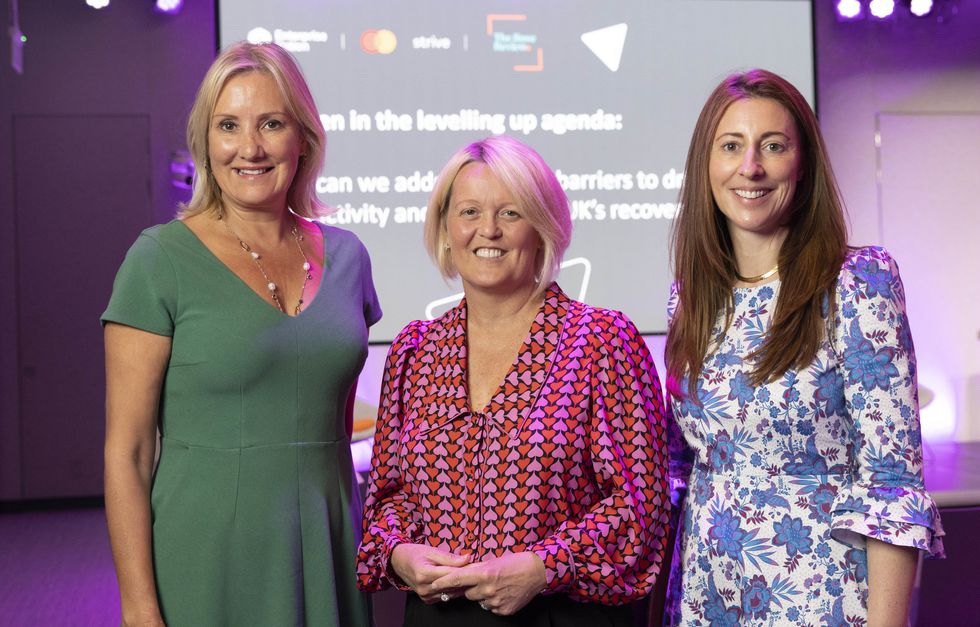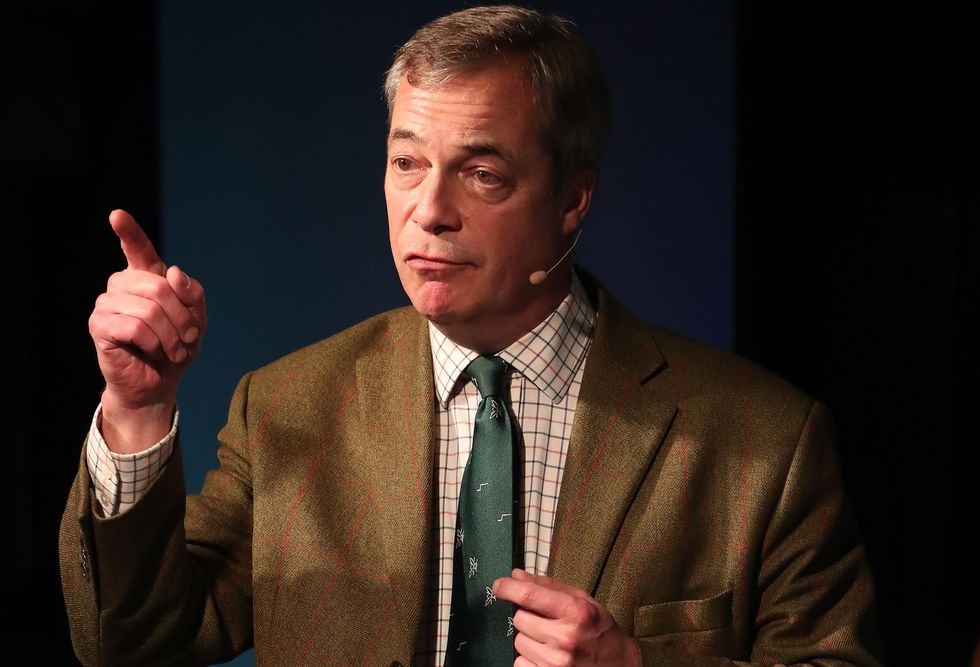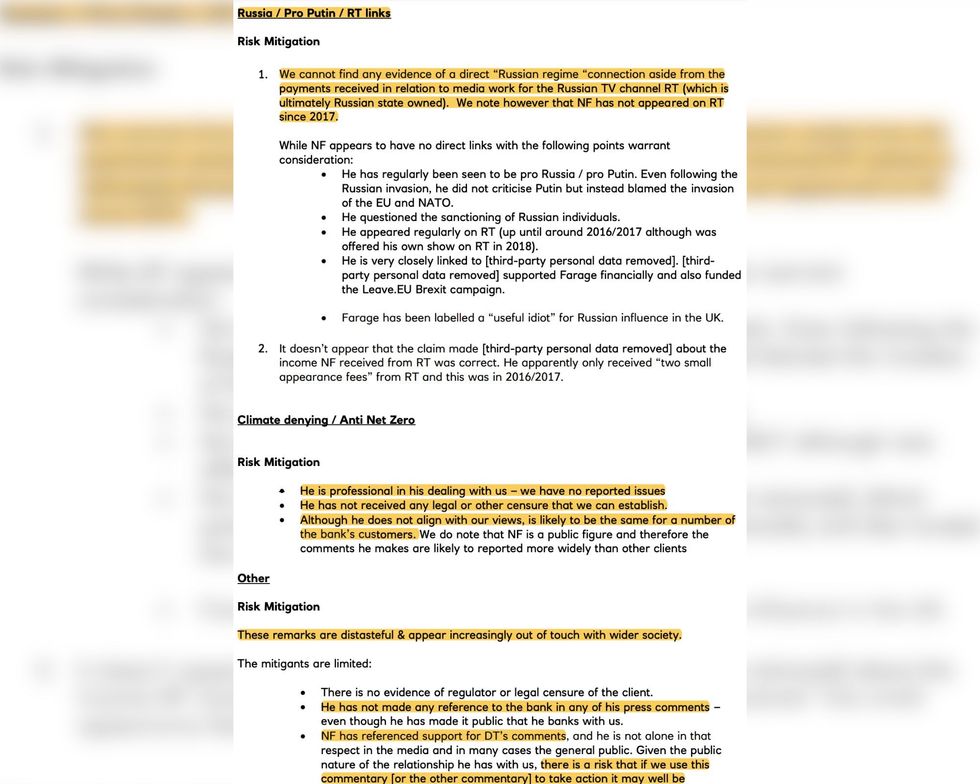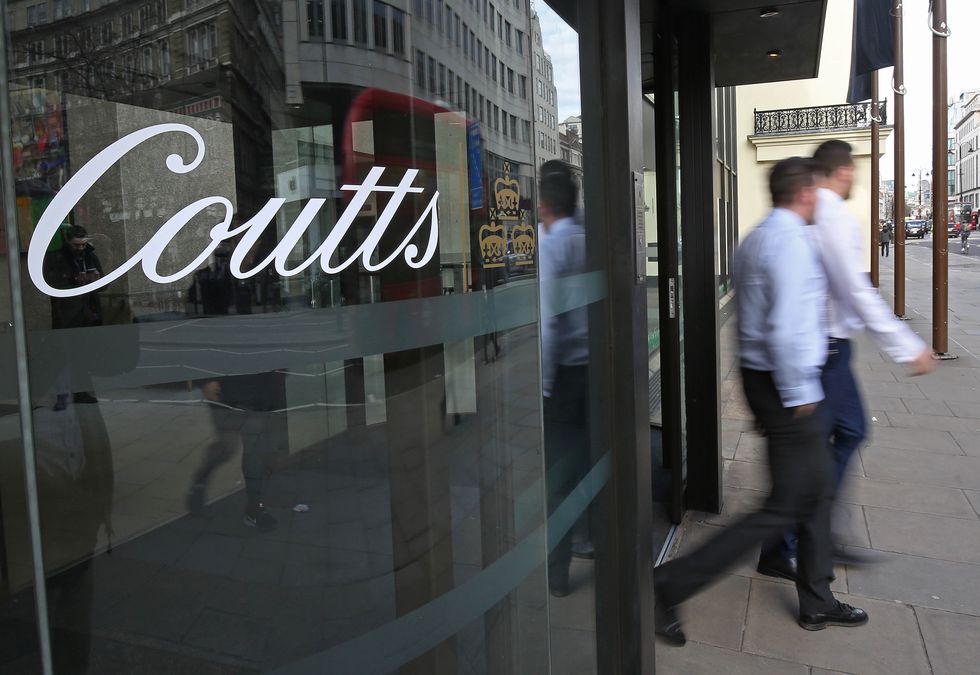Nigel Farage demands entire NatWest board quits after it attempted to keep Alison Rose in job

Nigel Farage calls for NatWest board members to quit following Alison Rose's resignation
Reuters

Nigel Farage calls for NatWest board members to quit following Alison Rose's resignation
Dame Alison Rose spectacularly quit as NatWest's chief executive after she confessed to leaking Nigel Farage's personal banking details
Nigel Farage has called for NatWest board members who supported the group's statement last night to quit after Dame Alison Rose resigned as the bank's chief executive.
The former Brexit Party leader appeared on GB News' Breakfast with Eamonn & Isabel to discuss the situation just hours after Dame Alison stepped down with immediate effect.
The NatWest chief executive quit after admitting to disclosing private banking information about Farage to the BBC, claiming the conversation was a "serious error of judgment".
Farage, 59, responded to her resignation by calling for further departures from NatWest's board as he urged Rishi Sunak's Government to take additional action.
He said: “She’s gone and that’s a start but I have to say that Peter Flavel, who is the CEO of Coutts, has failed to even acknowledge three letters that I have written to him.
“Howard Davies, who of course describes himself as the chairperson of the NatWest Group, it was he that put Alison Rose in place, it was the board that sanctioned this culture.
“A culture that talks about diversity and inclusion, and actually is very divisive, and in my case, as you can see, pretty poisonous stuff.
“I think any board member that endorsed that statement last night, that said we breached confidentiality but she can say in her post, frankly I think the whole board needs to go.”
LATEST DEVELOPMENTS: Dame Alison Rose (centre)PA
Dame Alison Rose (centre)PAFarage added: "The Government, being a 38.6 per cent shareholder in this bank, along with other major investors needs to appoint a new temporary board to take control of this bank.
"And then what we need to do, starting very early in the autumn, is to put in legislation which says banks cannot and must not discriminate individual customers because they support Brexit or they don't think putting rainbow flags on the front of the bank is right, that's the first step.
"Then we need to address the money laundering regulations that effectively have become the sledgehammer to miss the nut.
"It's the innocent that are getting hurt whilst the big-time crooks still get away with it."
 Nigel FaragePA
Nigel FaragePANatWest Group chairman Sir Howard Davies released a statement in the early hours of this morning before markets opened.
He revealed an agreement had been reached for Dame Alison to step back from her role by "mutual consent".
NatWest initially backed its chief executive but soon changed its position after Government Ministers put pressure on the bank.
Chancellor Jeremy Hunt and Number 10 expressed "serious concerns" over her conduct.
NatWest held an emergency board meeting late on Tuesday night, with the announcement coming just hours later.
 A 40-page dossier shows Coutts chiefs made a concerted effort to 'exit' him as a customer as they didn’t believe the former Ukip leader aligned with their viewsGB News
A 40-page dossier shows Coutts chiefs made a concerted effort to 'exit' him as a customer as they didn’t believe the former Ukip leader aligned with their viewsGB NewsConfirming her departure, Davies said: “The Board and Alison Rose have agreed, by mutual consent, that she will step down as CEO of the NatWest Group. It is a sad moment.
“She has dedicated all her working life so far to NatWest and will leave many colleagues who respect and admire her.”
In a separate statement, Dame Alison added: “I remain immensely proud of the progress the bank has made in supporting people, families and business across the UK, and building the foundations for sustainable growth.
“My NatWest colleagues are central to that success, and so I would like to personally thank them for all that they have done.”
The 53-year-old, who was the source who told the BBC that Farage fell below Coutts' strict financial threshold, also released an apology to the ex-UKIP leader last week.
 Coutts bank in LondonPA
Coutts bank in LondonPAHer apology came after Farage presented a 40-page dossier which revealed that his accounts at Coutts had been closed primarily as a result of his political views.
The evidence obtained from the bank through a data request contradicted a now-amended BBC News story which claimed that the account closure was due to Farage’s failure to meet a £1million borrowing requirement.
The broadcaster and its business editor Simon Jack subsequently apologised, claiming its report had been based on information from a "trusted and senior source".
They also conceded the information was "incomplete and inaccurate".